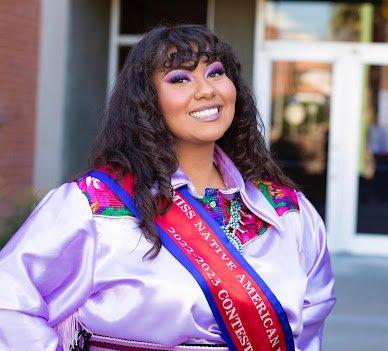Health Equity
There is a Mental Health crisis among Native American adolescent girls across the United States. Due to structural racism and historical trauma, Indigenous young people are at a higher risk for suicide and depression than their white counterparts. Although race-and-gender-disaggregated data are sparse, those that are available (see graphs on this page) show that Native American girls are increasingly at higher risk for poor mental health than are both their Native male and white female same-age peers.
We are addressing this crisis through IMAGEN Girl Societies, which increase the frequency and reliability of in-person social connections and cultural renewal activities with same-race, same-gender peers and mentors. Through our work in supporting system and structural changes, we are also exploring how both Native American adolescents and their adult female mentors define well-being. Indigenous communities have different understandings of mental health; our research data and connections with partners across Indian Country give us expertise in assisting with interventions that are culturally sensitive and tailored to the unique challenges faced by Native communities.
Suicide risk, Native 6-8 graders, New Mexico, 2021. Source: 2021 YRBSS.
Suicide risk, Native 6-8 graders, North Dakota, 2021. Source: 2021 YRBSS.
Supporting Indigenous Health Equity Fellows
Partnership development is key in strengthening Indigenous communities. We celebrate and uplift the work of our network in advancing health equity through their activism, research, work, and leadership. Read more about the members in our circle whose work is primarily focused on health equity!
-

Courtney Reeder, MPH (she/her)
Courtney is a Certified Personal Trainer, Zumba, and yoga instructor at Oklahoma City Indian Clinic (OKCIC). She helps lead OKCIC’s Girl Societies and is an IMAGEN Fellow.
-

Nadira Mitchell (she/her)
Nadira is a student at the University of Arizona studying Natural Resources. She is interested in the integration of Indigenous perspectives in environmental health. She is an Indigenous Young Leader.
-

Michaela Parrot, MS (she/her)
Michaela Parrott is a pediatric dietitian at the Oklahoma City Indian Clinic. She develops after-school programs and camps for Native youth patients. She is an IMAGEN Fellow.
-

Chase Baird-Iron Cloud (she/they)
Chase is a Biology student at Stanford University working on Indigenous traditional and ceremonial healing. They are an Indigenous Young Leaders cohort member.
Health Equity Leadership
In 2023 our work was recognized in several health spaces. We delivered the keynote at the Tribal Epidemiology Center United South and Eastern Tribes' Public Health Best Practices Conference, had a mental health video accepted in the American Psychological Association's Presidential Task Force on Culturally Informed Trauma Recovery Kits, and were selected as John Lewis Health Equity Mentors for CDC's Office of Health Equity Summer Public Health Scholars.
Photo credit: IMAGEN. Featuring IJC founder and executive director Kelly Hallman, and IJC Project Manager Lisa Polen at the USET Best Practices conference.
Community Partnership Programs
Photo credit: NACS
Strengthening Communities & Connections
Early into the COVID-19 epidemic, we focused our work on helping combat social isolation and addressed mental, physical, and spiritual health during the pandemic. Our partners were innovative in using funds to maintain strong connections with the girls in their communities during a time of isolation and limited access to support systems. Many groups created supply kits that were delivered to girls at their homes and that responded to the unique health needs in their communities such as self-care items, gardening, crafting supplies, smudge kits, masks, food, and emergency supplies.
IJC distributed $36,000 to directly fund groups that were doing health equity work with AI/AN adolescent girls. To reach as many girls as possible, IMAGEN created micro-grants ranging from $500-$2,000 that were dispersed to Native women working with local girls. Between May and October 2020 IMAGEN administered 68 micro grants to 33 Girl Society groups working in 44 communities, reaching over 600 girls in 14 states.
Photo credit: Tinokwe Foundation







